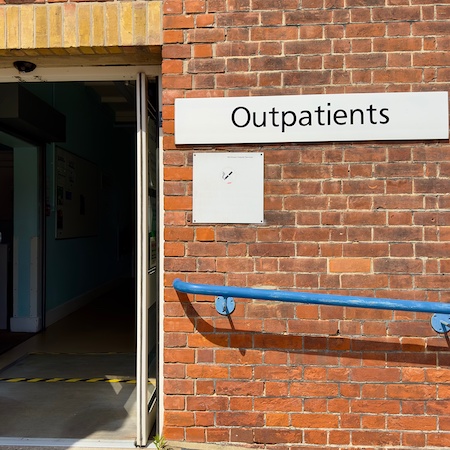Long-term, protected funding to adapt hospitals, care homes and other healthcare buildings to the impacts of climate change is one of the recommendations of an expert report to Parliament today (April 30). The report, from the Climate Change Committee, sets out the extent to which the UK is unprepared for extreme weather events.
Experts stress there is now unequivocal evidence that climate change is making extreme weather in the UK more likely and more extreme. Across the UK, this looks like heatwaves, heavy rainfall and wildfire-conducive conditions. It isn’t just hospitals, but the UK in general is not appropriately prepared for this, and notably, there has been no change in addressing this risk with the change in Government.
Immediate concerns of the Committee:
• Heat-related deaths already occur in the thousands each year but could rise several times over to exceed 10,000 in an average year by 2050. This increase is driven by the effect of climate change on a growing ageing population, which is increasingly vulnerable to extreme heat. In heatwaves, many of hospitals already struggle to operate effectively, with impacts such as unusable operating theatres and reduced staff productivity.
• Over half of England’s top quality agricultural land is at risk of flooding today, with a further increase in total agriculture land at risk expected by 2050. Climate change also poses a major threat to UK biodiversity, at a time when it is degrading rapidly.
• 6.3 million properties in England are in areas at risk of flooding from rivers, the sea and surface water. This is predicted to rise to around eight million (one in four) by 2050. Steadily rising sea levels at the UK’s coasts will increase the risk of coastal flooding and exacerbate coastal erosion.
• Over a third of railway and road kilometres are currently at flood risk, predicted to rise to around half by 2050. Extreme heat also disrupts infrastructure systems via rail buckling and power line sagging.
• Estimates suggest that unchecked climate change could impact UK economic output by up to 7% of GDP by 2050, creating challenges for driving sustainable long-term growth across the country.
If no action is taken, the situation will only get worse, as Baroness Brown, Chair of the Adaptation Committee explains: “We have seen in the last couple of years that the country is not prepared for the impacts of climate change. We know there is worse to come, and we are not ready – indeed in many areas we are not even planning to be ready. The threat is greatest for the most vulnerable: we do not have resilient hospitals, schools or care homes. Public and private institutions alike are unprepared.”
As an example, the report references the impact of extreme temperatures during summer 2022, which exceeded 40 degrees Centigrade for the first time in the UK. Nearly 3,000 heat-related deaths in England, largely in those aged over 65, were linked with this record heat and other hot periods across the summer. In addition, one in five doctors reported having to cancel surgeries due to extreme heat, as a result of factors such as staff shortages and overheating in theatres. At Guy’s and St Thomas’ NHS Foundation Trust in London, heat-related failure of a data centre caused IT outages and disrupted the delivery of healthcare across both hospitals.
The Adaptation Committee is required to review the UK’s progress on adaptation every two years. The vast majority of the assessment outcomes for the 2025 report have the same low scores as in 2023. In terms of adaptation delivery, it has not found evidence to score a single outcome as ‘good’. The Committee recommends four areas of urgent action for the Government to take, to improve objectives and targets, improve coordination across government, integrate climate adaptation into all relevant policies, and implement monitoring, evaluation and learning across all sectors.
For example, the next Spending Review needs to ensure that climate adaptation planning is supported with sufficient resources across government. Public assets and critical public services such as the NHS, need to be resilient to current and future weather so that they can operate effectively, and in the case of new infrastructure, without costly retrofitting. The Government’s policy agenda can help to close key policy gaps identified in this report, but only if climate resilience is adequately incorporated into its forthcoming strategies and plans.
Actions for the NHS
The report points to gaps in policies and plans to protect healthcare delivery from future climate risks.
NHS England has published a suite of policies and plans to improve ambition on considering adaptation across the NHS estate. The NHS Standard Contract has been updated to mandate that all NHS providers actively mitigate risks related to climate change and severe weather. The latest Green Plan Guidance includes an adaptation provision to be incorporated within Green Plans by 2027. The recently published NHS Climate Change Risk Assessment Tool and the NHS Climate Adaptation Framework will also support identification of climate risk to sites and services. Similarly, the Care Quality Commission single assessment framework now considers emergency preparedness for climate events, at NHS Trust sites only.
The report says there are opportunities to strengthen these plans further through implementation targets and consistent monitoring and evaluation mechanisms. Climate assessment at all Care Quality Commission sites is also needed to ensure policies and plans have sufficient scope. Funding allocations to adapt hospitals, care homes and other healthcare buildings are not set out. The NHS 10-year plan provides an opportunity to integrate adaptation within the NHS estate and operations, while helping to ensure sufficient funding.
In the March/April issue of HEFMA’s Pulse magazine, Louise Elstow from the Centre for Sustainable Development at the Department of Engineering at Cambridge University, explains more about the need for adaptation policies across NHS Trusts.











